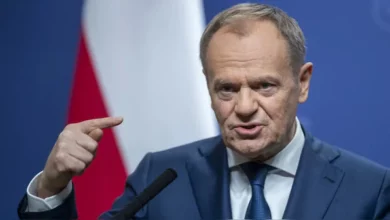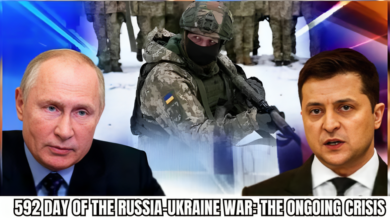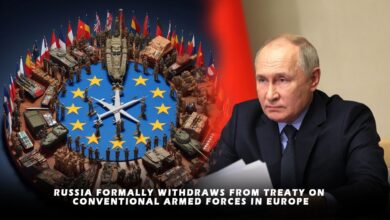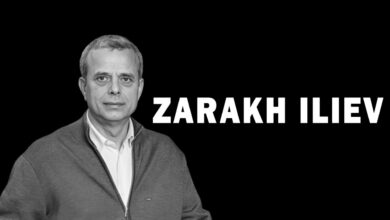Dmitry Rybolovlev : Russian Oligarch Dirty Secrets 2023
Dmitry Rybolovlev Complete Biography
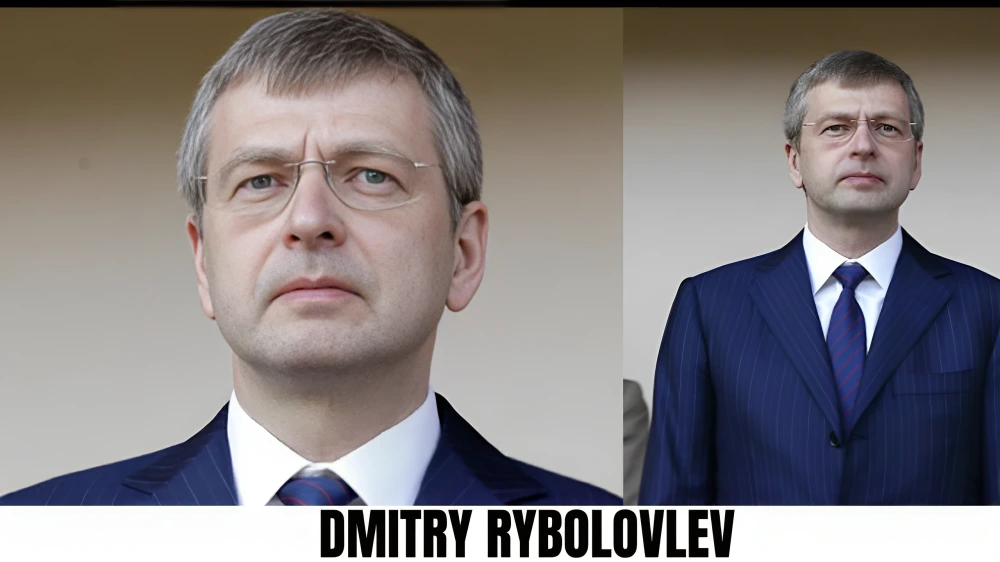
Dmitry Rybolovlev is a Russian oligarch, billionaire businessman, and investor.
Rybolovlev became chairman of the Russian fertilizer producer Uralkali in 1995. In 2010, he sold his majority share of Uralkali to three Kremlin-linked oligarchs for $6.5 billion. As of 2023, Rybolovlev had a reported net worth of $6.7 billion, which ranked him 391st on Forbes’s list of billionaires. In 2011, he became the majority owner and President of Monaco’s football club AS Monaco.
Dmitry Rybolovlev : Birth, Parents , Early Life and Education
Dmitry Rybolovlev was born on November 22, 1966, in Perm, Russia. Both his parents, father Evgeny Rybolovlev and mother Zinaida Rybolovleva were doctors.
In 1990, Dmitry graduated with honors from the Perm Medical Institute as a cardiologist, and worked in the cardiology emergency service for some time.
Dmitry Rybolovlev Marriage Life And Children
Dmitry Rybolovlev was married to Elena Rybolovleva in 1987. Rybolovlev and Elena had met on their first day of university in the Russian city of Perm and had tied the knot in Cyprus and were together for 23 years.
The eldest daughter Ekaterina Dmitrievna Rybolovleva (Katia) was born on 4 June 1989 in Perm, Russia.
After the success of his fertilizer company, Uralkali, Dmitry faced death threats forcing Elena and Katia to flee to the United States n 1993, where they lived for a few months. Later thet sought refuge in Geneva , Switzerland.
When Ekaterina Dmitrievna Rybolovleva (Katia) was 7, her father was arrested and jailed in Russia for 11 months on suspicion of plotting the murder of a Russian business associate, Eugenia Panteleimon.
Elena and Katia lived alone in Switzerland with a staff of a butler, cook, gardener, chauffeur, two cleaning ladies, and a nanny. They were not allowed to visit Dmitry in prison because traveling to Russia was considered too dangerous. Elena even hired private security to protect her daughter until Dmitry was acquitted and released from prison.
In 2001 their youngest daughter Anna was born.
On October 21, 2015, Ekaterina Dmitrievna Rybolovleva (Katia) married Uruguayan businessman Juan Sartori.
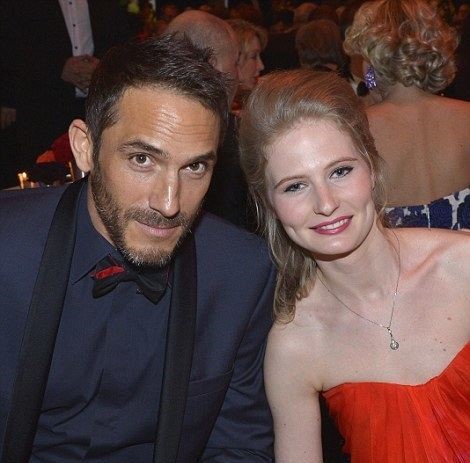
Dmitry Rybolovlev Career Growth
Dmitry Rybolovlev started a company called “Magnetix” in 1990, which provided medical services using magnetotherapy, a method developed by his father, to corporate clients.
Due to the chaotic economic climate in the Soviet Union, Dmitry’s clients paid him with goods instead of cash. He then had to sell the goods, which turned out to be more profitable than his alternative medicine business. In fact, he made his first million dollars during this time.
Dmitry Rybolovlev, an entrepreneur from Perm, was one of the first to receive a license for securities trading in the early 1990s. By 1994, he was already heading Credit FD bank and several investment companies. Rybolovlev used his connections with Perm leaders to his advantage during privatization: he offered to keep track of the shareholders’ registers, which had multiplied at each enterprise as a result of the Chubais voucher program. This gave the former medical doctor access to financial information about virtually all Perm factories, and he began buying shares in the most profitable ones, including Uralkali, the largest producer and exporter of mineral fertilizers.
In 1994, Dmitry Rybolovlev became a member of the Board of Uralkali, and 2 years later he headed the company that controls about 30% of the global export of potash fertilizers. In 2000, he consolidated more than 50% of the company’s shares.
In June 2010, he sold controlling stakes (53.2%) in Uralkali to Kaliha Finance Limited (Suleiman Kerimov, 25% ownership), Aerellia Investments Limited (Alexander Nesis, 15%) and Becounioco Holdings Limited (Filaret Galchev, 13.2%). The amount of the transaction was estimated at $5.32 billion, but not more than $3 billion was paid in cash
Dmitry Rybolovlev Accused And Arrested For Evgeny Panteleimonov Murder in 1996
In 1996, Dmitry Rybolovlev was arrested in Perm on charges of killing Evgeny Panteleimonov, General Director of JSC “Neftekhimik” (40% of the company’s shares owned by Rybolovlev). In 1997, the Perm regional court fully acquitted Rybolovlev, considering that the businessman was stipulated by the direct organizer of the murder Oleg Lomakin.
According to retired FSB Major Bessonov, Rybolovlev may have been involved in more than 15 murders. However, only one case, the murder of his business partner Evgeny Panteleimonov, went to trial. The direct organizer of the murder, Oleg Lomakin, testified that Rybolovlev was the client who provided the weapons and promised $50,000 to the perpetrators.
Rybolovlev was convicted by the regional court, but luck turned in his favor again. Money, connections in the special services, ties to gangsters, and pressure on witnesses all played a role, and the Supreme Court overturned the murder conviction. Rybolovlev was released.
Dmitry Rybolovlev Stake In Bank Of Cyprus (2010)
In 2010, Dmitry Rybolovlev gained control over a 9.7% stake in Bank of Cyprus.
Dmitry Rybolovlev controls a trust, along with his daughters, that owns a company called Odella Resources, which in turn is the largest single shareholder of Bank of Cyprus .Odella Resources bought 7.57% holding in the bank, bringing its equity position to 9.7%. The fund is registered in the British Virgin Islands.
Dmitry Rybolovlev Bought EU citizenship From Cyprus ?
Billionaire Russian Oligarchs and Ukrainian Elites Accused of Corruption Acquire EU Passports Under Controversial “Golden Visa” Schemes
Hundreds of individuals accused of corruption, including billionaire Russian oligarchs and Ukrainian elites, have obtained EU passports under controversial “golden visa” schemes. These programs allow wealthy individuals to obtain citizenship or residency in an EU member state in exchange for a substantial investment, typically in real estate or government bonds.
Prior to 2013, Cypriot citizenship was granted on a discretionary basis by ministers, in a less formal version of the current arrangement.
Dmitry Rybolovlev, who acquired Cypriot citizenship in 2012 and said it was “natural for him to get citizenship upon becoming an investor in Bank of Cyprus”.
Launched in 2013, Cyprus’ current citizenship-by-investment scheme requires applicants to place €2m in property or €2.5m in companies or government bonds. There is no language or residency requirement, other than a visit once every seven years.
Golden visa schemes have been criticized for providing a backdoor to citizenship for individuals who may pose security risks or have questionable reputations. They have also been accused of driving up property prices and exacerbating inequality.
In a recent report, the European Parliament called for a stricter scrutiny of golden visa schemes and urged EU member states to close any loopholes that could be exploited by individuals seeking to evade sanctions or engage in criminal activity.
The report found that there have been a number of cases of individuals with questionable backgrounds obtaining EU passports through golden visa schemes. For example, in 2017, it was revealed that a Russian businessman with close ties to the Kremlin had obtained a Cypriot passport under the country’s golden visa scheme. The businessman was later sanctioned by the United States for his role in Russia’s annexation of Crimea.
Golden visa schemes have also been criticized for their impact on property prices. In recent years, property prices in some EU countries, such as Portugal and Malta, have soared, making it difficult for locals to afford to buy homes. This has been attributed in part to the influx of foreign investors seeking to invest in real estate under golden visa schemes.
The European Parliament’s report called for a number of reforms to golden visa schemes, including:
- Increased transparency and accountability
- Stricter due diligence checks on applicants
- A requirement that applicants reside in the EU member state for a certain period of time before obtaining citizenship
The report also called for a review of existing golden visa schemes to ensure that they are not being abused.
The European Commission is currently considering the report’s recommendations and is expected to propose reforms to golden visa schemes in the coming months.
Dmitry Rybolovlev Sanctions By Ukraine
Ukraine’s National Security and Defence Council has imposed sanctions against the Russian Oligarch Dmitry Rybolovlev.
Dmitry Rybolovlev has personally donated money for humanitarian relief in Ukraine. The donations from Mr Rybolovlev have been channeled through the International Federation of Red Cross and Red Crescent Societies (IFRC) and the International Committee of the Red Cross (ICRC).
Rybolovlev is not on any western sanctions list and is not a close confidante of Putin.
“It is absolutely crucial to support those who are suffering the most. Therefore, AS Monaco, Cercle Brugge and myself in a personal capacity, as well as various companies where the Rybolovlev Family Trust is invested, have decided to make donations to provide humanitarian aid,” Dmitry Rybolovlev said during the early weeks of the Russian attack on Ukraine.
Uralkali’s Potash Mine Berezniki 1 Flooding And Sink Hole 2006
On Oct. 17, 2006, water seeped into the shafts of the potash mine beneath the city of Berezniki, dissolving the salt and causing the ground around it to collapse, creating a 170-by-90-meter (558-by-295-foot) sinkhole. It damaged homes, railroad tracks and roads. A power plant and a train line, the main arteries for the entire region’s industry, were also impaired.

A government commission led by his friend Trutnev, who, as natural resources minister, was responsible for the investigation at the time, exonerated Rybolovlev of any culpability in the disaster, instead blaming the sinkhole on a geological anomaly.
In response to the Berezniki mining disaster in fall 2008, Russia’s deputy prime minister at the time Igor Sechin initiated a new investigation, leading to a drastic decline in Uralkali’s share prices. The company faced off against the Kremlin’s demand for compensation ranging from $1.5 billion to $50 billion, as Kremlin officials sought to hold Rybolovlev accountable for the loss of potash production in Berezniki during the months following the incident.
In December 2008, only a few weeks before reaching an agreement with the Russian government, he sold 25 percent of his shares to Keralt Global, a company in Panama.
In early 2009, Uralkali settled the Kremlin’s claims by paying $218 million, which included the cost of a new train line. The Kremlin’s demand for billions of dollars in damages was seemingly dropped.
In June 2010, he sold a 53.2 percent stake in Uralkali for $6.5 billion to three entrepreneurs with close connections to the Kremlin. He sold controlling stakes (53.2%) in Uralkali to Kaliha Finance Limited (Suleiman Kerimov, 25% ownership), Aerellia Investments Limited (Alexander Nesis, 15%) and Becounioco Holdings Limited (Filaret Galchev, 13.2%). The amount of the transaction was estimated at $5.32 billion, but not more than $3 billion was paid in cash.
In April 2011 the remaining 10% of Uralkali shares were bought out from Rybolovlev by Alexander Nesis.
Dmitry Rybolovlev Acquired AS Monaco Football Club
In Dec 2011, Dmitry Rybolovlev became the President at Assn Sportive de Monaco Football Club. Rybolovlev acquired a 66.6 percent stake in the AS Monaco Football Club through his Monaco Sport Invest (MSI) holding.
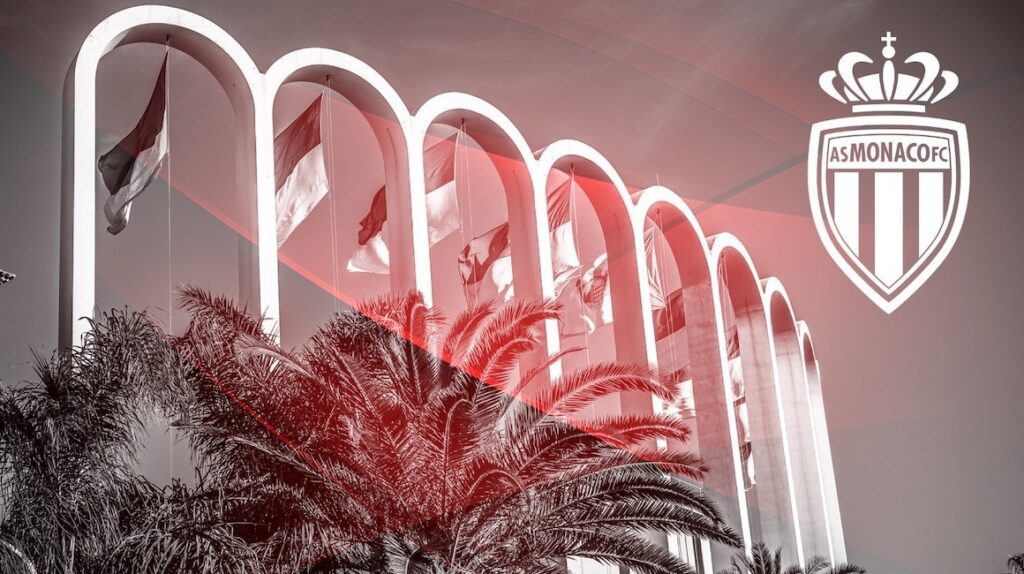
Prince Albert II of Monaco called the deal “a new page in the history of the football team so dear to the principality”.
Dmitry Rybolovlev Art Fraud Battle With Yves Bouvier
Art dealer Yves Bouvier served as Dmitry Rybolovlev’s agent from 2003 to 2014, until the Russian billionaire discovered that an Amedeo Modigliani painting he had purchased for $118 million had been acquired by Bouvier for only $93.5 million.
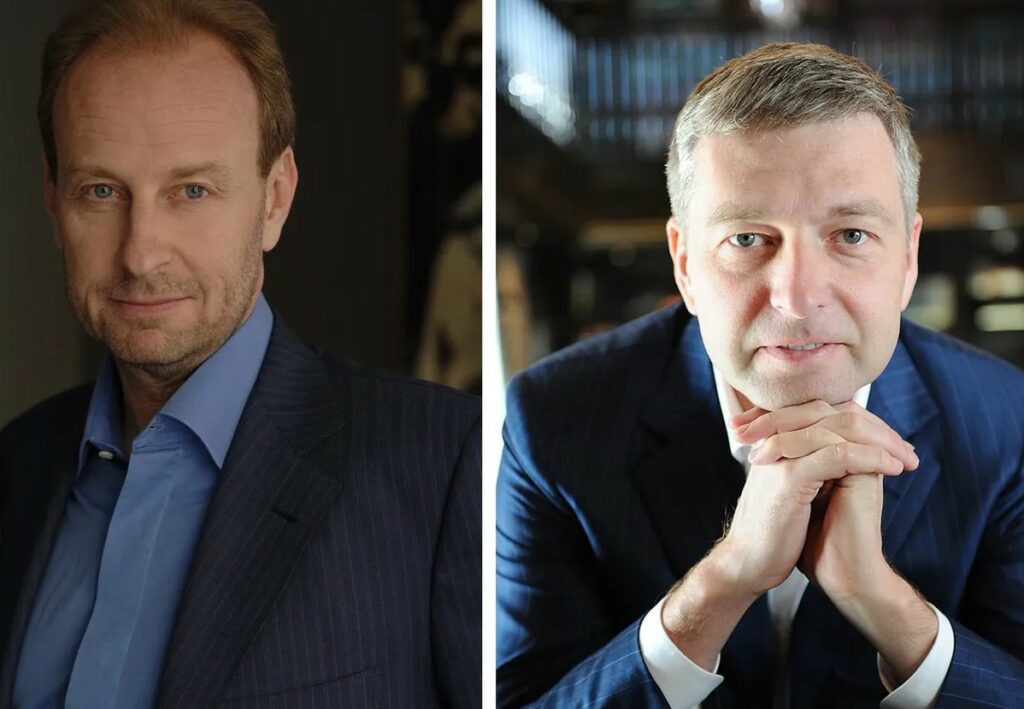
Under the impression that Bouvier was only charging a 2% fee, Rybolovlev accused him of inflating prices for personal gain. In response, Bouvier asserted his right to determine his own markups.
Since 2015, Rybolovlev has lost nine cases filed across Singapore, Hong Kong, New York, and Monaco, according to a press release from Bouvier’s lawyers. The most recent case took place in Geneva, where charges against the Swiss art dealer were dismissed in September of 2021.
Rybolovlev’s Legal Losses
Since 2015, Rybolovlev has lost nine cases filed against Bouvier in various jurisdictions around the world. These cases include:
- Singapore: In 2017, a Singapore court dismissed Rybolovlev’s lawsuit against Bouvier, ruling that the Singapore courts did not have jurisdiction over the matter.
- Hong Kong: In 2018, a Hong Kong court ruled that Rybolovlev had failed to provide sufficient evidence to support his claims against Bouvier.
- New York: In 2019, a New York court dismissed Rybolovlev’s lawsuit against Sotheby’s auction house, which he accused of colluding with Bouvier to inflate the prices of artworks.
- Monaco: In 2019, a Monaco court dismissed Rybolovlev’s lawsuit against Bouvier, ruling that the case was “unfounded.”
Geneva Case Dismissed In September 2021
In September 2021, a Geneva court dismissed charges against Bouvier, ruling that there was insufficient evidence to support Rybolovlev’s claims. This was the most recent case in the legal battle between the two men.
Swiss Court Reopens an Investigation Into Yves Bouvier in 2022
Dmitry Rybolovlev appealed the Geneva court’s decision to drop the case and the court has reinstated the investigation. According to Swiss authorities who have reopened investigations into Bouvier, they are “convinced that the procedure will swiftly establish the criminal responsibility of Yves Bouvier and his acolytes”.
The reinstatement of the investigation in Geneva could potentially lead to new charges against Bouvier and could significantly impact the outcome of the overall dispute.
It will be fascinating to see how the investigation unfolds and whether it provides any new evidence to support Rybolovlev’s claims against Bouvier.
Dmitry Rybolovlev Detained In Monaco In Nov 2018
Dmitry Rybolovlev was detained in Monaco for questioning in a corruption-related case on November 6, 2018. The detention was part of an ongoing investigation into allegations that Rybolovlev used his influence to try to sway the outcome of a legal case in Monaco.
The investigation began in 2017 after Rybolovlev filed a lawsuit against Yves Bouvier, an art dealer who he accused of overcharging him for paintings. Rybolovlev is alleged to have tried to influence the outcome of the case by using his connections with the police and judiciary in Monaco.
Rybolovlev was released from custody after questioning, but he remains under investigation. The investigation is ongoing, and it is unclear whether any charges will be brought against him. On November 8, 2018, Rybolovlev left Monaco and flew to Moscow.
The detention of Rybolovlev is a significant development in the investigation into allegations of corruption in Monaco. Rybolovlev is a high-profile figure, and his detention is likely to increase scrutiny of the investigation.
Dmitry Rybolovlev Helped Finance Tom Cruise film “Top Gun”
In Jan 2023, a US lawsuit has revealed that Dmitry Rybolovlev helped finance the Tom Cruise blockbuster Top Gun: Maverick.
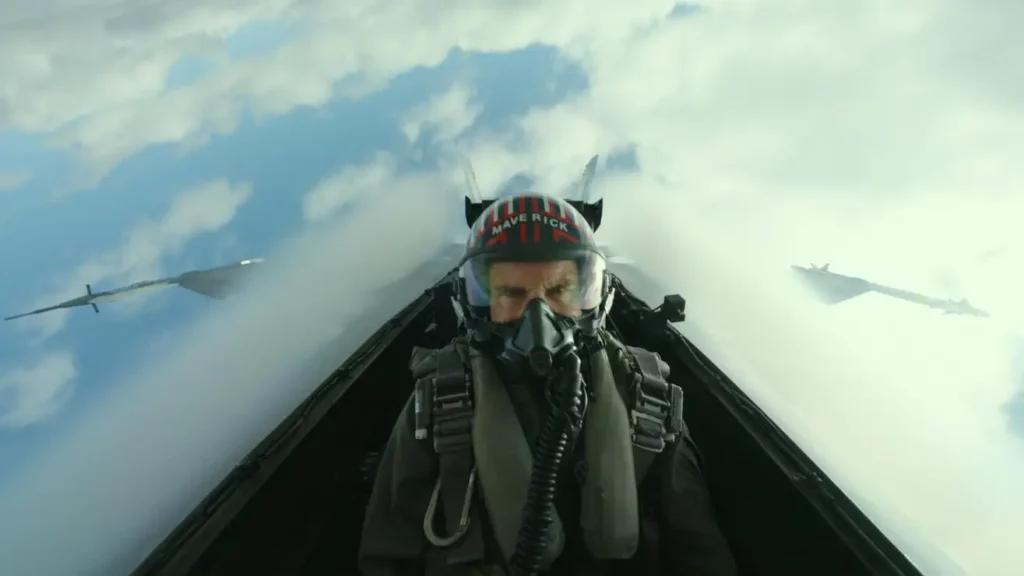
Dmitry Rybolovlev is said to have exercised “functional control” over a production company that signed a $200 million deal in 2020 with the Hollywood giant Paramount Pictures to fund up to a quarter of the budget of ten films.
This was revealed by I-AML, an Israeli Anti Money Laundering website.
New Republic signed a more than $200-million deal with Paramount Pictures to fund up to a quarter of the budgets on 10 movies, including “Top Gun: Maverick,” in exchange for a share in any profits or losses from the movies.
On March 7, the Ukrainian World Congress in an open letter called upon the Academy of Motion Picture Arts and Sciences to:
- explicitly reject films with any direct or indirect investments by Russian oligarchs or other enablers of Russia’s genocidal war on Ukraine;
- review the eligibility of “Top Gun: Maverick” to participate at the 95th Academy Awards for that same reason; and
- issue a strong statement at this year’s award ceremony condemning Russia’s war against Ukraine and any attempts to influence Hollywood and American society.
Read the open letter here about the need to prohibit Russian influence.
Rybolovlev Dmitry Bought Trump’s Palm Beach Property
Dmitry Rybolovlev was a defendant in Robert Mueller’s investigation about Russia’s possible interference in US elections. The Mueller Commission examined Rybolovlev’s purchase of the Donald Trump mansion in Palm Beach in 2008. The purchase was very suspicious: Rybolovlev bought Trump’s villa for a record at that time $95 million, though Trump purchased it in 2004 for $41 million.
But Palm Beach real estate agents put the Russian oligarch’s investment in the Palm Beach property at $115 million.
A 2016 subdivision led to the tearing down of the 66,000-square-foot mansion and its outbuildings, formerly owned by the late health care magnate, Abe Gosman.
Three parcels were carved out of the 6.3-acre property, which has 475 feet of beach. The two outer parcels sold for $37 million and $34 million each, for a total of $71 million.
But the third, middle lot remains for sale at $42 million, a higher price than the other lots fetched.
FAQs on Dmitry Rybolovlev:
Who is Dmitry Rybolovlev?
Dmitry Rybolovlev is a Russian billionaire businessman and the owner of AS Monaco FC. He is the former owner of Uralkali, a Russian potash producer, and has a net worth of $6.7 billion as of October 2023.
How did Dmitry Rybolovlev make his fortune?
Rybolovlev made his fortune in the potash industry. He acquired Uralkali in the 1990s and turned it into one of the world’s largest potash producers. He sold his majority stake in the company in 2010 for $6.5 billion.
What is Dmitry Rybolovlev known for?
Rybolovlev is known for his business acumen, his lavish lifestyle, and his involvement in art and sports. He is a major collector of art, and he owns AS Monaco FC, a French football club.
Is Dmitry Rybolovlev controversial?
Yes, Rybolovlev is a controversial figure. He has been involved in several legal battles, including a high-profile dispute with art dealer Yves Bouvier. He is also under investigation in Monaco for alleged corruption.
What is Dmitry Rybolovlev’s net worth?
Rybolovlev’s net worth is estimated to be $6.7 billion as of October 2023.
What is Dmitry Rybolovlev’s occupation?
Rybolovlev is a businessman and investor. He is the owner of AS Monaco FC and has interests in a variety of businesses, including agriculture, shipping, and real estate.
What is Dmitry Rybolovlev’s nationality?
Rybolovlev is a Russian citizen.
Where does Dmitry Rybolovlev live?
Rybolovlev lives in Monaco.
Is Dmitry Rybolovlev married?
Yes, Rybolovlev was married to Elena Rybolovleva. They are divorced now. They have two children.




